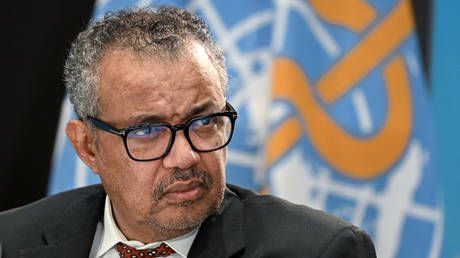The World Health Organisation (WHO) has made a milestone declaration on the pandemic, three years after it became a global health emergency.
In a significant step, the WHO declared an end to the “public health emergency of international concern”.
“It is therefore with great hope that I declare COVID-19 over as a global health emergency,” WHO Director-General Tedros Adhanom Ghebreyesus said.
But Dr Tedros said it did not mean COVID-19 was over as a global health threat, and the disease was with us to stay.
COVID was raised to the highest level of alert on January 30, 2020.
Shockingly, the death toll over that three years is officially seven million, but the WHO estimates the figure is likely 20 million.
At the height of the pandemic, 100,000 people a week were dying.
Today the figure is 3500, reflecting widespread vaccination, availability of better treatments and a level of population immunity from prior infections.
Australia recorded about 11 million confirmed cases.
Ending the global health emergency status is a sign of the progress the world has made in these areas, but COVID-19 is here to stay, the WHO said.
“COVID has changed the world, and it has changed us. And that’s the way it should be. If we go back to how things were before COVID-19, we will have failed to learn our lessons, and failed our future generations,” Dr Tedros said.
Ending the emergency could mean that international collaboration or funding efforts are also brought to an end or shift in focus, although many have already adapted as the pandemic has receded in different regions.
“The battle is not over. We still have weaknesses and those weaknesses that we still have in our system will be exposed by this virus or another virus. And it needs to be fixed,” the WHO’s emergencies director Michael Ryan said.
The WHO does not declare the beginning or end of pandemics, although it did start using the term for COVID-19 in March 2020.
“In most cases, pandemics truly end when the next pandemic begins,” Ryan said.
Last year, US President Joe Biden said the pandemic was over.
Like a number of other countries the world’s biggest economy has begun dismantling its domestic state of emergency for COVID-19, which officially ends on May 11, meaning it will stop paying for vaccines and testing for many people and shift responsibility to the commercial market.
Other regions have taken similar steps.
The European Union said in April last year the emergency phase of the pandemic was over and the WHO’s African head, Matshidiso Moeti, said in December it was time to move to routine management of COVID-19 across the continent.
The WHO’s declaration comes just four months after China ended its prolonged severe COVID-19 restrictions and was hit by a big surge in infections.
In many parts of the world, testing has dwindled dramatically and people have largely stopped wearing masks.
In some countries, mask-wearing mandates have resumed during COVID-19 outbreaks.
The WHO published a plan this week advising countries on how to live with COVID-19 long-term.


